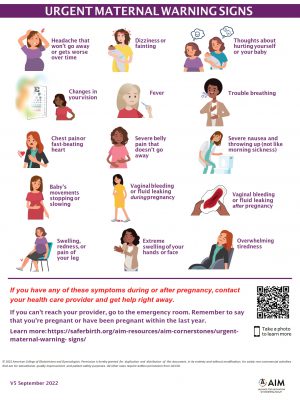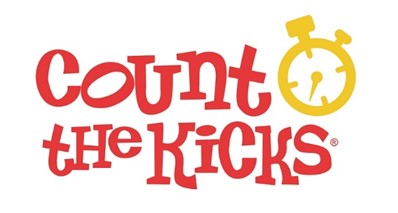B.I.R.T.H. Equity Maryland Patient Education
Just had a baby? Speak up! Learn to identify troubling signs and symptoms. Understand when to seek care and how to effectively advocate for yourself.
You know your postpartum body best! Watch this demonstration on effectively advocating for yourself with your medical provider when something feels wrong.
Your body goes through so many changes after giving birth. So it is important for you to know the sigs and symptoms of complications, and when you should call your doctor or call 911. This 60 second video could save your life!
Most new moms believe that after they have given birth and attended their 6 week check up, that is the last time they will need to see a doctor. However, it is more important now than ever to follow up with your primary care provider during the year after you have had your baby. Learn about the potential for long term complications; what to look out for and what to talk with your doctor about.
Have you felt your baby’s movements today? They are an important sign of your baby’s wellbeing. If you are greater than 28 weeks pregnant, you should be counting your baby’s movements once daily. Learn how with Count the Kicks, a statewide partnership with the Maryland Patient Safety Center.
Sleep-related infant deaths are the leading cause of injury and death in infancy and recently, this statistic is on the rise in Maryland. Practicing safe sleep for your baby may sound simple, but when YOU are sleep deprived there are a few things you have to keep in mind to ensure your baby’s safety.
What happens when the happiest time of your life doesn’t feel so happy? You may hear “maternal mental health” and think “postpartum depression”, but maternal mental health disorders can occur any time during pregnancy and up to one year after giving birth. Learn more about the signs, symptoms, and when to seek help.
Do you know all the members of your birthing team? A variety of healthcare professionals may be involved in your care and may vary depending on the birth setting and circumstances. Learn about all of these important roles and who will assist you along your pregnancy and delivery journey.


